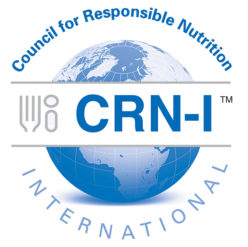See abstract translations in:
Arabic | Chinese | English | French | German | Hindi | Japanese | Korean | Portuguese | Russian | Spanish

Unlocked coverage from the CRN Daily Supplement member newsletter, June 6, 2022.
“Optimal is greater than the sum of the merely sufficient” when it comes to women’s health throughout the lifecycle, explain authors of a new review published in the European Journal of Nutrition.
The review follows CRN-International’s (CRN-I) 2021 webinar series, led by CRN Senior Vice President Scientific and International Affairs, Jim Griffiths, Ph.D., that convened experts to explore the unique nutritional needs, challenges, and opportunities for women at key life stages, with an emphasis on the need for science-based policymaking.
“Nutrition science is moving toward understanding optimal nutrition in the broader context of dietary patterns, and nutrient intake must consider the complexity of interactions involving not only adequate nutrition but also the interplay with social, behavioral, environmental, community dynamics, and many other lifestyle factors,” wrote the authors.
The authors expressed concern that existing women’s health nutrition policy is falling short, pointing to programs that focus more on delivering calories than achieving optimal nutrition as an example.
Providing recommendations for improvement of current entitlement programs to support women properly throughout the lifecycle, the authors noted:
-
To be locally effective, targeted nutrition needs to offer different proposals for different cultural, socio-economic, and geographic communities, and needs to be applicable at all stages of growth and development.
-
Support for women’s ability to age healthfully must go beyond a narrow focus on reproduction and hormonal wellness and instead address a broader spectrum of opportunities that optimize the role of nutrition in gender-driven structural and functional distinctions.
-
Education about optimization should be part of the landscape to help ensure consumption as part of a diet that not only achieves adequate daily levels of vitamins and minerals, but to also gain the documented advantages ascribed to the intake of nutrients beyond simple adequacy.
Go deeper: Access the full article and webinar sessions on demand.
